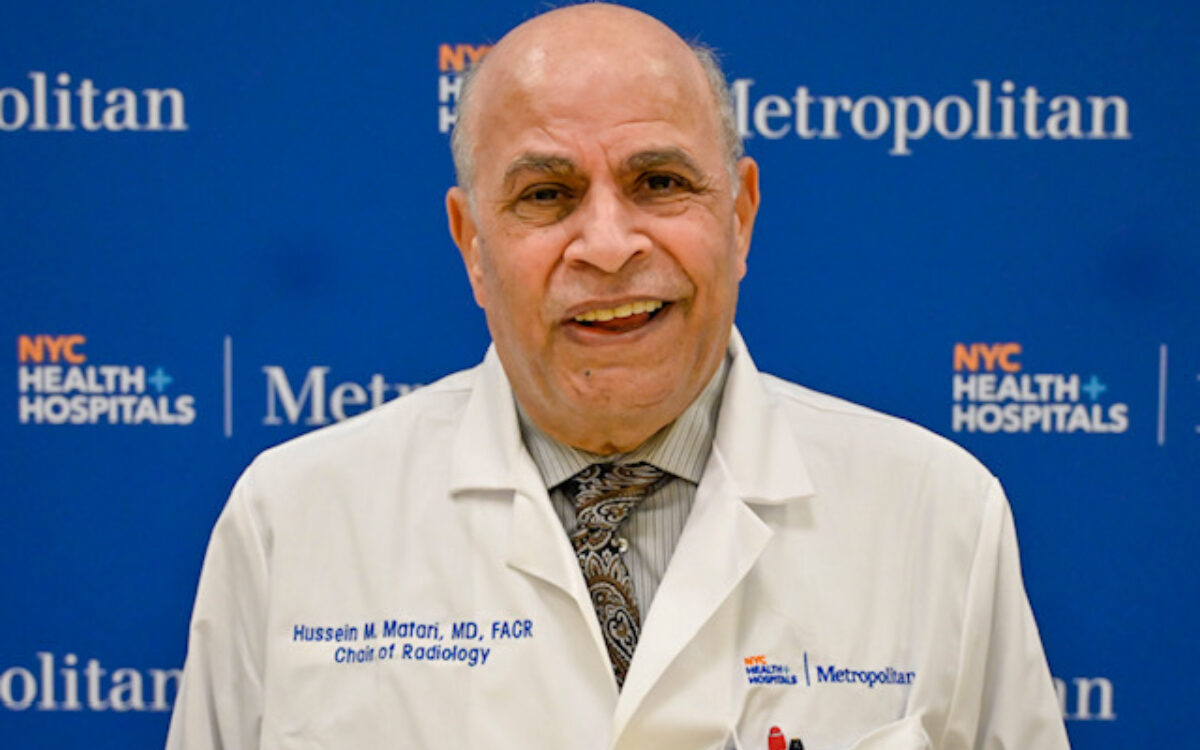
Hussein Matari, M.D., Chairman of Radiology, NYC Health + Hospitals/Metropolitan
To close out our Arab American Heritage Month provider features, we’re proud to honor Hussein Matari, M.D., Chairman of Radiology at NYC Health + Hospitals/Metropolitan. Dr. Matari is an accomplished physician, as well as Professor of Radiology at New York Medical College.
...
Dr. Matari was born into an impoverished village. Because they didn’t have much, he and his family members embraced a sharing ethic, and would do whatever they could to help each other learn and grow. He says, “I often reflect on those times and remember that, in life, we are all siblings.”
It was this drive—to help others in his community—that would later inform his decision to become a physician.
Growing up, Dr. Matari’s village lacked a doctor, so he and his mother would trek long distances to visit neighboring villages and receive medical care. He remembers reading the road signs aloud to his mother on these journeys that opened his eyes to the importance of healthcare access.
His family, too, encouraged Dr. Matari to imagine life beyond their village. They prized education, and taught him about the importance of Arab contributions to modern medicine, contributions that spanned hundreds of years. They empowered him to dream of making his own mark on the field.
When he left his village, Dr. Matari set out to become more than a doctor, but a “better person than [he] was the day before.”
Within the Arab community, like many other communities, Dr. Matari says, there is a hesitance to seek out medical aid if something isn’t “feeling wrong,” even if prevention is more effective than treatment for any condition. Recognizing his community’s hesitance to seek out medical care, he is interested in supporting outreach programs that impact New York’s Arab American population. “I would love to see more outreach programs into the Arab communities to inform them on possible healthcare risks.”
“As Arabs, we believe that it is imperative to help those in need,” Dr. Matari said. He continued, “In every patient, I see an opportunity and obligation to help improve their lives, just as I did with my community back home.” And through helping others, he’s felt a change in himself, too.
To the next generation of Arab American physicians, Dr. Matari advises: “Never forget where you came from. In health care, it’s easy to get bogged down by heavy workloads and stress, but when you see every patient as a fellow person instead of just a patient, you’ll have every motivation you need to provide the best care you can.”
To our Arab American providers, we are thankful for the compassion you show to your patients every day and your commitment to improving public health outcomes in New York City. Our organization would not be what it is without your unique perspective and expertise.



